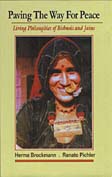
European Vegetarian and Animal News Alliance (EVANA)
en de fr pt es
it nl ro sl sq sv
 |
European Vegetarian and Animal News Alliance (EVANA) |
Select language: en de fr pt es it nl ro sl sq sv |
|---|
|
Book recommendation: 
Join us on  Facebook! RSS engl. RSS all lang. Donation to EVANA. |
EFSA animal health and welfare recommendations on the import of wild birdsPress ReleaseEuropean Food Safety Authority Parma, 14th November 2006 The Panel on Animal Health and Welfare (AHAW) of the European Food Safety Authority (EFSA) has recommended that the need to continue the import of wild birds into the European Union (EU) should be carefully considered owing to both animal health and welfare concerns. Although the probability can vary according to the captive wild bird species and the likelihood of infection in captivity, there is a high probability of some species carrying infectious animal diseases and transmitting them to other birds in the EU. In addition, there is generally a high mortality rate and widespread suffering amongst imported wild birds. Before the EU import ban 1 on wild birds (excluding poultry) was put in place in 2005 over 800,000 wild birds per year were imported as pets, for show or for zoos. The European Commission has asked EFSA to carry out a risk assessment on both the animal health and welfare aspects associated with the import of such birds into the EU. The risk assessment principally focused on Avian Influenza, Newcastle Disease and Chlamydiosis. EFSA’s scientific advice will assist the European Commission and Member States in reviewing the continued need for the ban. The Panel made the following main recommendations in order to reduce the risk of “exotic” animal diseases entering the EU through the import of wild birds other than poultry: improvements in checks, traceability and quality control in third countries testing of birds at point of entry into the EU continued harmonisation and improvements in testing methods improved containment and biosecurity measures to avoid cross contamination during transport. Concerning animal welfare the Panel said that: significant improvements would need to be made in all aspects along the captivity export pathway, particularly concerning conditions of capture, care and transport it would be preferable to breed birds in captivity with high welfare standards rather than import birds captured in the wild which are often subject to poor conditions in certain scenarios, the import of hatching eggs instead of animals would be preferred in order to reduce animal suffering. 1 Commission decisions 2005/759 http://eurlex. europa.eu/LexUriServ/site/en/oj/2005/l_285/l_28520051028en00520059.pdf, 2005/760 http://eurlex.europa.eu/LexUriServ/site/en/oj/2005/l_285/l_28520051028en00600062.pdf amended by 2006/522 http://eurlex.europa.eu/LexUriServ/site/en/oj/2006/l_205/l_20520060727en00280029.pdf . European Food Safety Authority (EFSA) Largo N. Palli 5/a, I 43100 Parma www.efsa.europa.eu The AHAW Panel carried out its risk assessment based on available data concerning the legal import of wild birds. The experts were not able to evaluate the impact of illegal imports due to the lack of available data. --- more information: -Environment chief and food agency target wild-bird trade
Link: FACTBOX - Bird Flu's Spread Around The Globe Link: Flu Viruses Survive Frozen In Lakes, Study Finds Link: RSPB warning over EU bird numbers Link: The full text of the Opinion is available on the EFSA website Date: 2006-11-15
Other EVANA-articles about this topic: International: Bird flu update -97- (en) FAO: H5N1 bird flu virus is changing (en) Euro-MP blames bird flu on factory farming (en) WHO slams Chinese Ministry of Health for not sharing bird flu info, viruses (en) Book: Bird Flu - A Virus of Our Own Hatching (en) FAO opens new bird flu crisis unit (en) Bird Flu Found in Pigs in Indonesia's Bali (en) |
|
|||||||||||||||||